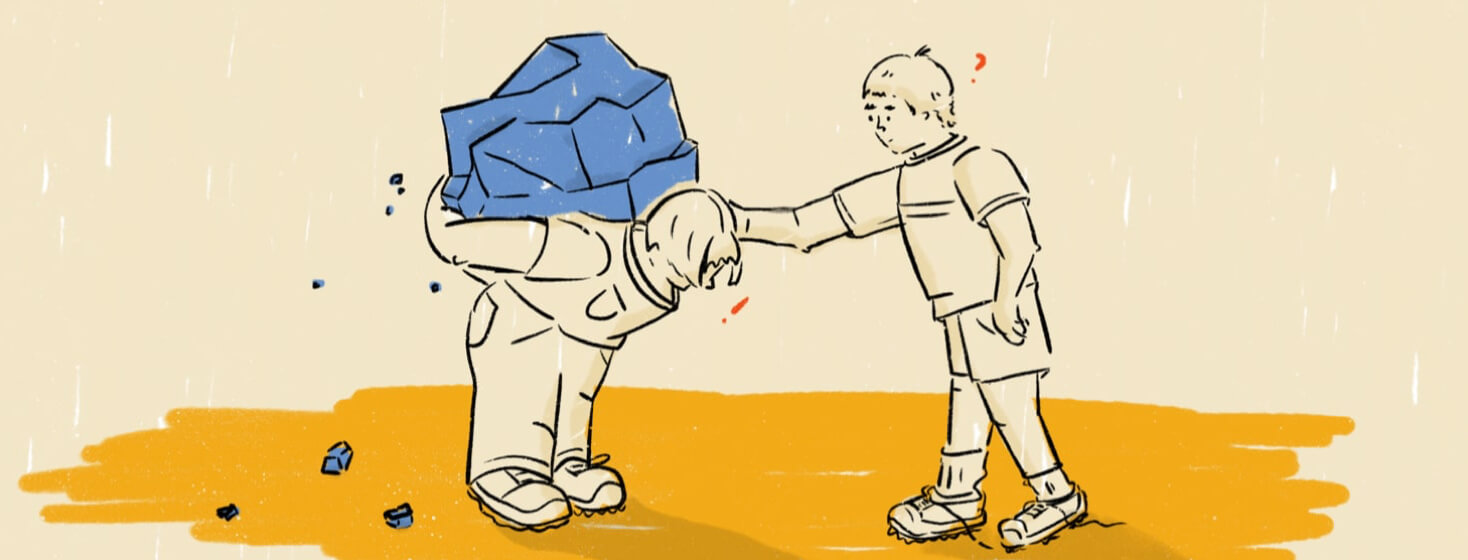The Detriments of Expectations
Everyone has the tendency to expect things from others. In my case, I am often expected to live the life of a "normal" 22-year-old. I am expected to have the energy to do the things my friends are doing, to have the ability to meet every social obligation. The fact is, I can't always meet those expectations.
Narcolepsy has changed the way I view myself and how I live my life. It had to.
Harmful assumptions
I look okay on the outside, which means I should be okay on the inside. This is what most people think, even if they think they know otherwise. This assumption is detrimental to a person living with a chronic illness, especially an invisible one; it leaves room for imposter syndrome to creep in.
It opens the floodgates for doubt and denial: Maybe I'm using this diagnosis as an excuse. Maybe it's not as serious as I think it is. If my friends think I'm okay, then maybe I am. It leaves me thinking: If I pretend to be "normal," maybe I can pass as "normal." If I stop talking about my illness, maybe it'll just go away.
I will never be fully understood
But it's no one's fault; I thought I understood this concept too until I was diagnosed with narcolepsy. It's impossible to fully grasp the carefully calculated allocation of energy. Or the mental gymnastics it takes to crunch those numbers; not until you've lived it.
My friend, near and dear to my heart, said, "But you've had narcolepsy the whole time; you just didn't know it. It doesn't change who you are." While she said this out of kindness, it broke my heart a little. That was the moment I realized I would never be fully understood by the people closest to me. And I have to make peace with that.
Expectation is a two-way street
But here's the thing, expectations go both ways. I was expecting my friends and family to think and feel a certain way about my illness. I was expecting them to be my foundation, my support through everything.
I expected too much from people who have their own struggles and need their own support. I cannot rely on any one person or any one group of people to be my foundation. I have to build a network of support, and honestly, learn how to support myself at times.
My personal transformation
So, let me try to explain the pre-diagnosis to post-diagnosis change that I went through:
Before my narcolepsy diagnosis
Prior to my diagnosis, I went out on the weekends. I would work my 8-hour shift (admittedly in between naps), take a 2-hour nap at home, get up to eat dinner, and go back to bed. My sleep at night was garbage, waking up 15 or more times a night, every night. Rinse, repeat. That was my life. I didn't realize how much my lifestyle impacted my health because I had no idea that my life had limitations.
After my narcolepsy diagnosis
Following diagnosis, I did have to make changes to my life. I am a different person with narcolepsy than the one I was without it. I know my limitations and inabilities; I know what I have to do to keep myself at least somewhat functional. Those necessities differ from that of someone without a chronic illness.
Staying afloat in a sea of responsibilities
I have to pay attention to every detail of my existence in order to stay afloat in a sea of responsibilities and obligations: this friend's wedding, that friend's birthday, holidays, midterms and finals, game nights on Tuesdays.
I am in a boat with holes, letting this sea overwhelm me. I have plugs, but they're limited, and some don't quite fit. These plugs are the only thing keeping me from drowning: medications, sleep hygiene, bedtimes, wake times, routine, support from others who struggle the way I do. And I only obtained these plugs with my diagnosis.
Give yourself some grace
Closing out, I would like to leave a message for both people with a chronic illness and to those who love a person with a chronic illness:
There will be days when you need space, and that's okay. We should not try to force a loved one to be something they are not, regardless of which side of the coin you fall. You are doing your absolute best in an undesirable situation. Applaud yourself for your growth, love one another, and, as my friend Matt Horsnell is fond of saying, give yourself some grace. That's all we can do.

Join the conversation